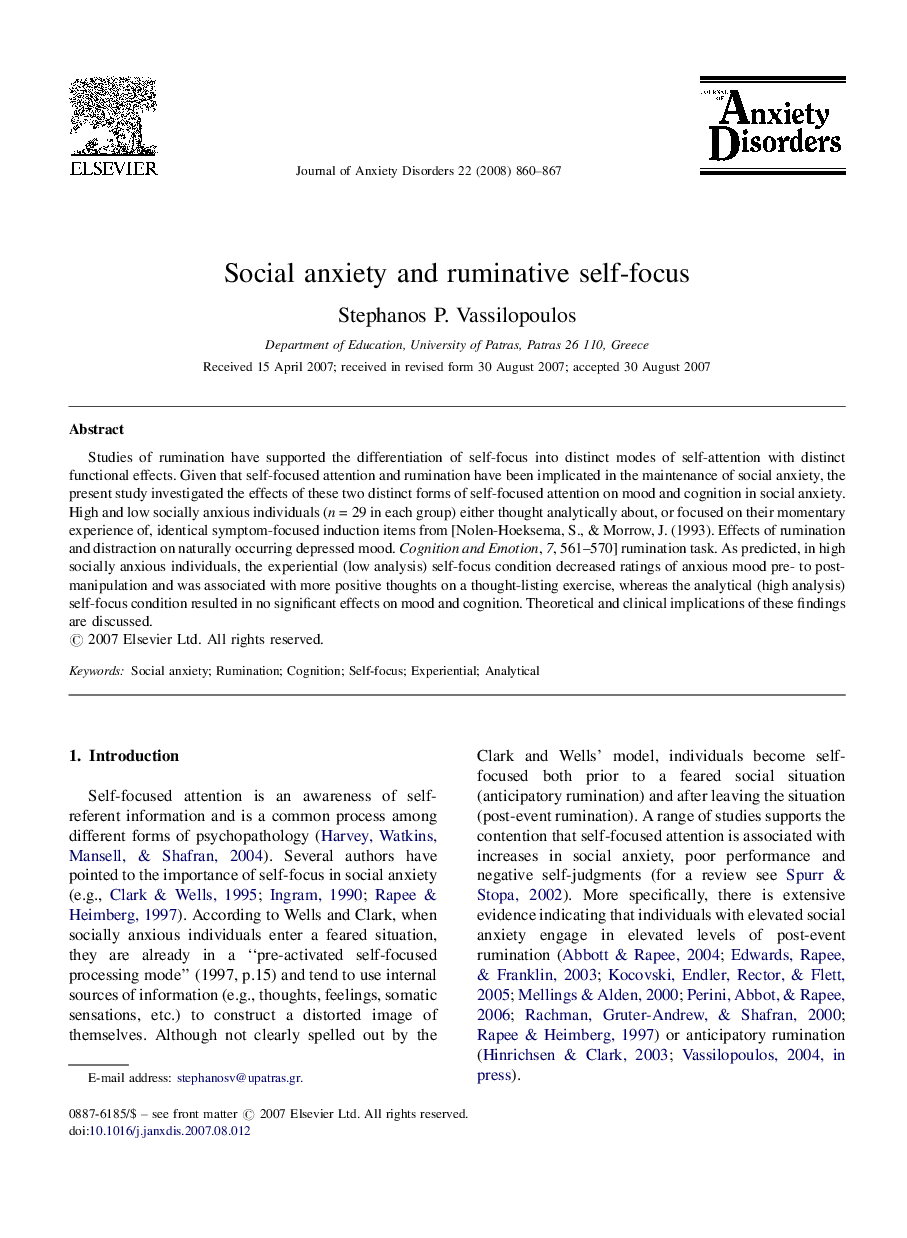| Article ID | Journal | Published Year | Pages | File Type |
|---|---|---|---|---|
| 910148 | Journal of Anxiety Disorders | 2008 | 8 Pages |
Studies of rumination have supported the differentiation of self-focus into distinct modes of self-attention with distinct functional effects. Given that self-focused attention and rumination have been implicated in the maintenance of social anxiety, the present study investigated the effects of these two distinct forms of self-focused attention on mood and cognition in social anxiety. High and low socially anxious individuals (n = 29 in each group) either thought analytically about, or focused on their momentary experience of, identical symptom-focused induction items from [Nolen-Hoeksema, S., & Morrow, J. (1993). Effects of rumination and distraction on naturally occurring depressed mood. Cognition and Emotion, 7, 561–570] rumination task. As predicted, in high socially anxious individuals, the experiential (low analysis) self-focus condition decreased ratings of anxious mood pre- to post-manipulation and was associated with more positive thoughts on a thought-listing exercise, whereas the analytical (high analysis) self-focus condition resulted in no significant effects on mood and cognition. Theoretical and clinical implications of these findings are discussed.
